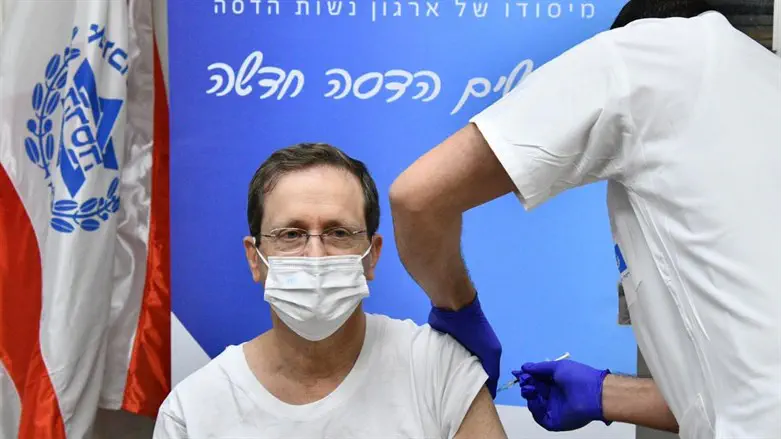
A recent study entitled, “Protection by a Fourth Dose of BNT162b2 against Omicron in Israel,” co-authored by Dr. Sharon Alroy-Preis, Prof. Nachman Ash, and others, has concluded that the fourth dose of the Pfizer vaccine confers very brief protection against infection with COVID, although protection against severe illness from COVID appears to be more long-lasting.
The study is based on data from the Israeli Health Ministry for people over the age of 60 who were eligible for a second booster dose from January 2, 2022. Of the approximately 1.2 million people who were eligible, around half opted to take the fourth dose.
The study divided subjects into three groups: those who had a fourth dose from 8 days after the shot (the trial group); those who opted out of a fourth dose (control group); and those who had a fourth dose but only 3 to 7 days had passed since the shot (internal control group).
While infection rates for those in the trial group were significantly lower during the first few weeks of the study period, by the fifth week, “the rate ratio for confirmed infection started to decline,” the authors noted. Furthermore, “The adjusted rate of infection in the eighth week after the fourth dose was very similar to those in the control groups” – just 1.1, meaning that a person who had a second booster shot was no longer protected against being infected with COVID two months following that shot.
With regard to severe cases of COVID, the results were more promising. At four weeks following the second booster, the rate of infection in the trial group was 1.5 person-days per 100,000, as compared with 3.9 for those who only had one booster, and 4.2 for those less than a week after the second dose.
Following up to six weeks post-second booster (when the analysis ended), the authors of the study stated that, “no signs of waning were evident by the sixth week after receipt of the fourth dose,” and added that, “More follow-up is needed in order to evaluate the protection of the fourth dose against severe illness over longer periods.”
Limitations of the study included the fact that mortality rates, either from COVID or non-COVID causes, were not cited. Similarly, the data focused on severe illness from COVID exclusively, without looking at other illnesses.

